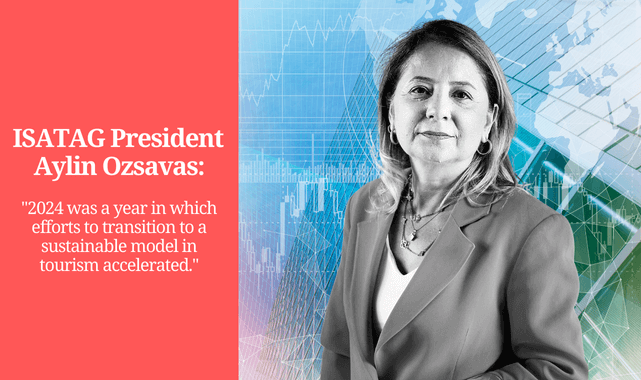
The year 2024 marked a period that clearly demonstrated both the potential and the challenges faced by Turkish tourism. In the post-pandemic recovery phase, the industry painted a promising picture with increasing tourist numbers, while simultaneously struggling with economic and structural issues. High inflation, rising operational costs, and suppressed exchange rates in Turkey made it difficult for tourism enterprises to maintain sustainable service quality. Particularly, visa issues and a lack of skilled manpower were among the primary barriers limiting the effectiveness of tour operators and travel agencies in international markets. However, the implementation of new projects in thematic areas such as gastronomy, culture, health, and nature tourism was a positive development. Nevertheless, the lack of adequate international promotion of this diversity prevented the full realization of its potential.
The effects of overtourism were significant topics of discussion in 2024, both in Turkey and globally. Tourist volumes exceeding capacity led to the depletion of natural resources, damage to historical heritage, and a decline in the quality of life for local populations at popular destinations. In Turkey, the impacts were particularly felt in places like Cappadocia, Antalya, and Istanbul, with a shift towards alternative tourism types emerging as a solution.
Agro-tourism should be considered a notable alternative in this context. Turkey’s rich agricultural heritage will turn agro-tourism into a tool that supports rural development and promotes a more balanced spread of tourism. Thematic events such as vineyard experiences in Cappadocia, tea and hazelnut harvesting tours in the Black Sea region, and olive festivals in the Aegean will both support environmental sustainability and offer unique experiences to tourists.
Globally, the year 2024 was marked by accelerated efforts to transition tourism into a sustainable model. Projects aimed at reducing carbon footprints, circular economy practices, and green tourism initiatives became fundamental elements shaping the future of the sector.
Digitalization was used as an important tool for analyzing tourist behaviors, increasing operational efficiency, and improving customer experience. However, while this transformation progressed more quickly in developed countries, developing countries faced adaptation challenges in digitalization and sustainability. Reducing the impacts of overtourism and laying a more sustainable foundation for tourism involved global strategies such as promoting destination management and alternative tourism types.
The year 2025 stands as a critical year in this transformation process for tourism, where the right steps must be taken. Firstly, sustainability and eco-friendly projects need to be prioritized more. Concrete steps should be taken in areas like energy efficiency, renewable energy use, and waste management, both in Turkey and globally. Investments in digital transformation should be accelerated, and especially the integration of small-scale businesses into this process should be facilitated. Investments in human resources should be increased; comprehensive programs should be implemented to retain skilled labor in the sector and to encourage youth participation in tourism. Specifically for Turkey, easing visa procedures and restructuring international promotion strategies will be significant steps to enhance the country’s competitiveness in tourism. In 2025, tourism policies should shift away from short-term profit-oriented and overtourism-supporting policies to focus more on sustainable approaches. Emphasizing the promotion of less-known regions and encouraging alternative tourism types is of great importance to reduce congestion in popular destinations.
Tourism policies should not only aim for economic gain but also prioritize contributing to local development and protecting cultural values. In this context, providing financial and moral support to medium-sized travel agencies that bring in smaller, quality tourist groups and/or organize tours to less-known domestic destinations will be a critical strategy. This support will both invigorate local economies and facilitate a more balanced spread of tourism. With such an approach, Turkey can overcome its internal challenges and achieve a strong position in the global tourism market. The year 2025 should be one where the foundation stones for sustainable growth and innovative solutions in the tourism sector are laid. We hope that this year marks the beginning of a transformation process in tourism that supports local development, preserves natural and cultural riches, and focuses on human-centered changes.
Aylin ÖZSAVAŞ
Istanbul Travel Agencies Promotion and Development Association (ISATAG)
Chairman of the Board




 DOLAR
DOLAR EURO
EURO İNG. STERLİNİ
İNG. STERLİNİ İSV. FRANGI
İSV. FRANGI KAN. DOLARI
KAN. DOLARI ÇEYREK ALTIN
ÇEYREK ALTIN BITCOIN
BITCOIN